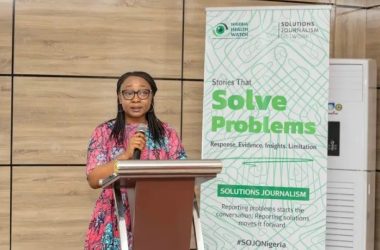 The Sasakawa Association will work with the Japan International Corporation Agency (JICA), to help double rice production to 50 million tonnes by 2030. Japanese Prime Minister Shinzo Abe made the announcement at the Sasakawa Africa Association (SAA) symposium held on Wednesday during TICAD7.
The Sasakawa Association will work with the Japan International Corporation Agency (JICA), to help double rice production to 50 million tonnes by 2030. Japanese Prime Minister Shinzo Abe made the announcement at the Sasakawa Africa Association (SAA) symposium held on Wednesday during TICAD7.
“Japanese technology can play a key role in innovation which is key to agriculture,” Prime Minister Shinzo Abe told delegates.
Discussions at the Symposium focused on Africa’s youth bulge, unemployment rates, agricultural innovations and technologies, solutions and job creation opportunities in the agricultural sector.
“We’ve always believed in the agriculture potential of Africa,” said Yohei Sasakawa, Chairman of the Nippon foundation. “We are paying more attention to income-generating activities. We want to help shift the mindset of small-holder farmers from producing-to-eat to producing-to-sell. We are hopeful that Africa’s youth can take agriculture to a new era, and that they can see a career path in agriculture,” he added.
In a keynote address, African Development Bank Group President, Akinwumi Adesina, called for urgent and concerted efforts to “end hunger”.
“In spite of all the gains made in agriculture. We are not winning the global war against hunger. We must all arise collectively and end global hunger. To do that, we must end hunger in Africa. Hunger diminishes our humanity,” Adesina urged.
According to the FAO’s 2019 State of Food and Security, the number of hungry people globally stands at a disconcerting 821 million. Africa alone accounts for 31% of the global number of hungry people – 251 million people.
Commending the Sasakawa Association’s late founder, Ryochi Sasakawa, for his tireless efforts in tackling hunger, Adesina said: “Passion, dedication and commitment to the development of agriculture and the pursuit of food security in our world has been the hallmark of your work.”
Between 1986 and 2003, Sasakawa Association in Africa, operated in a total of 15 countries including – Ghana, Sudan, Nigeria, Burkina Faso, Benin, Togo, Mali, Guinea, Zambia, Ethiopia, Eritrea, Tanzania, Uganda, Malawi and Mozambique.
Harnessing the potential of new technologies
Adesina expressed confidence in the ability of technology to deliver substantial benefits in agriculture. To accelerate Africa’s agricultural growth, the African Development Bank has launched the Technologies for African Agricultural Transformation (TAAT) to deliver new technologies to millions of farmers. ‘TAAT has become a game changer, and is already delivering impressive results, Adesina said.
Working with 30 private seed companies, the TAAT maize compact produced over 27,000 tons of seeds of water efficient maize that was planted by 1.6 million farmers.
Tackling climate change: a top priority
Hiroyuki Takahashi, founder of Pocket Marche, a platform that connects Japanese farmers and producers with consumers, shared insights and lessons learnt from Japan’s experiences, historic cycles of climate disasters and the country’s rebound.
“The power to choose what we eat is the power to stop the climate crisis and bring sustainable happiness to a world with limited resources,” Takahashi said.
It is estimated that Africa will heat up 1.5 times faster than the global average and require $7-15 billion a year for adaptation alone. Limiting the impacts of climate change is expected to become a top priority for Africa.
“Africa has been short changed by climate change. But, it should not be short changed by climate finance,” Adesina said in his concluding remarks.
“Let’s be better asset managers for nature. For while we must eat today, so must future generations coming after us. It is our collective responsibility to ensure that we do not leave empty plates on the table for generations to come,” Adesina concluded.





“Japanese technology can play a key role in innovation which is key to agriculture,” Prime Minister Shinzo Abe told delegates.
Japan cannot bring about miracles in Africa. It is Africans that should pull themselves up by the bootstraps, employ simple but effective technologies to transform food production from the subsistence level to levels that will not only feed nations but also generate surpluses for the market.
Like Bourne alluded to above, it is the thievery that sinks every ship of hope. Our own brethren will punch holes in the ship just to get what they want out of donor and loan funds.
We are our worse enemies folks and until we learn to put the money where it’s destined to be, we will never be out of the woods but will continue toying with the JICA, GAWFA, GIEPA ….together with an NDP that will bring us ZILCH!! Is it so difficult to feed The Gambia? Not really. It is doable!
I’m reminded of the Wollof adage, DI SAHARR REKK TEH DU TAKKA!! Here’s The Gambia’s predicament.